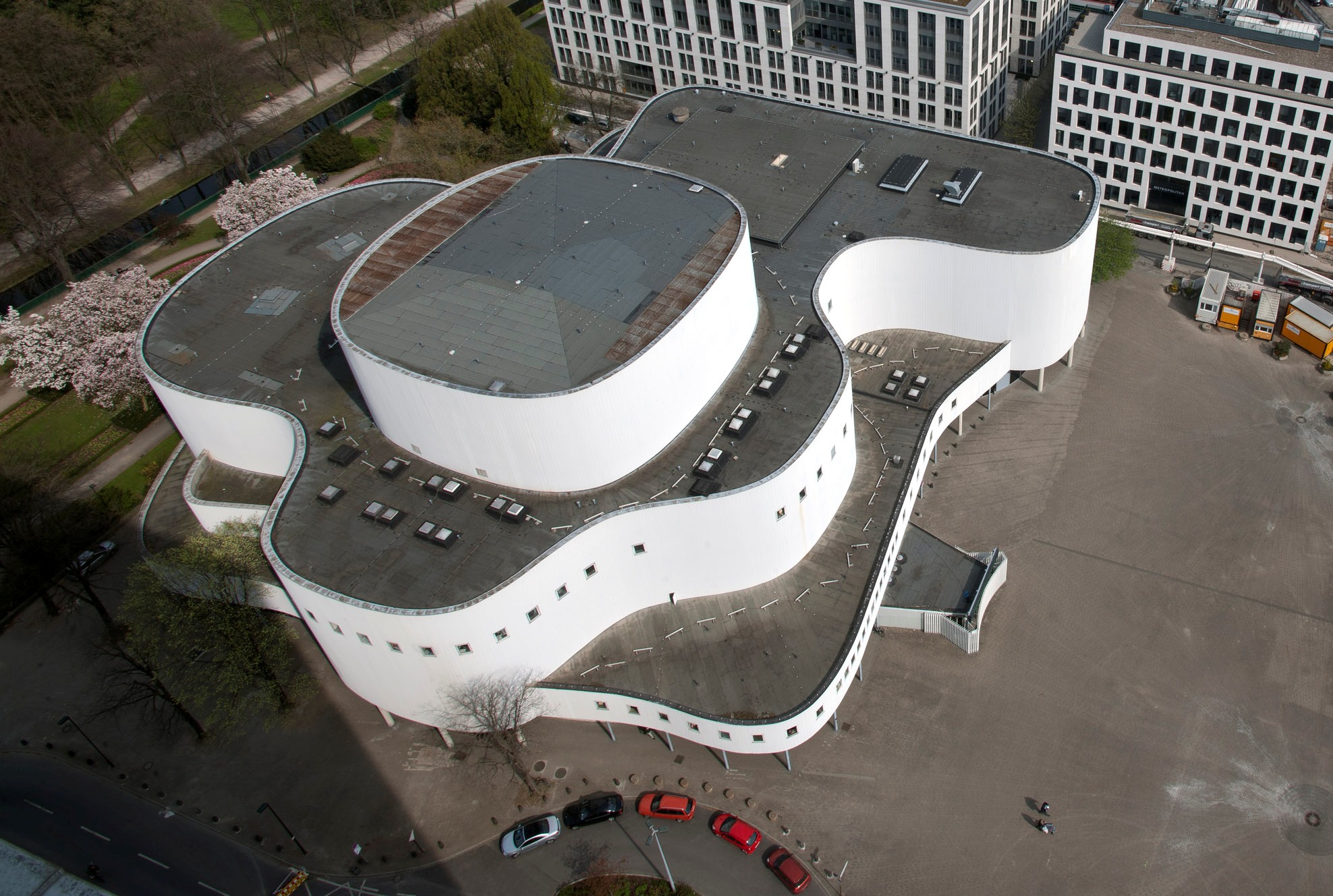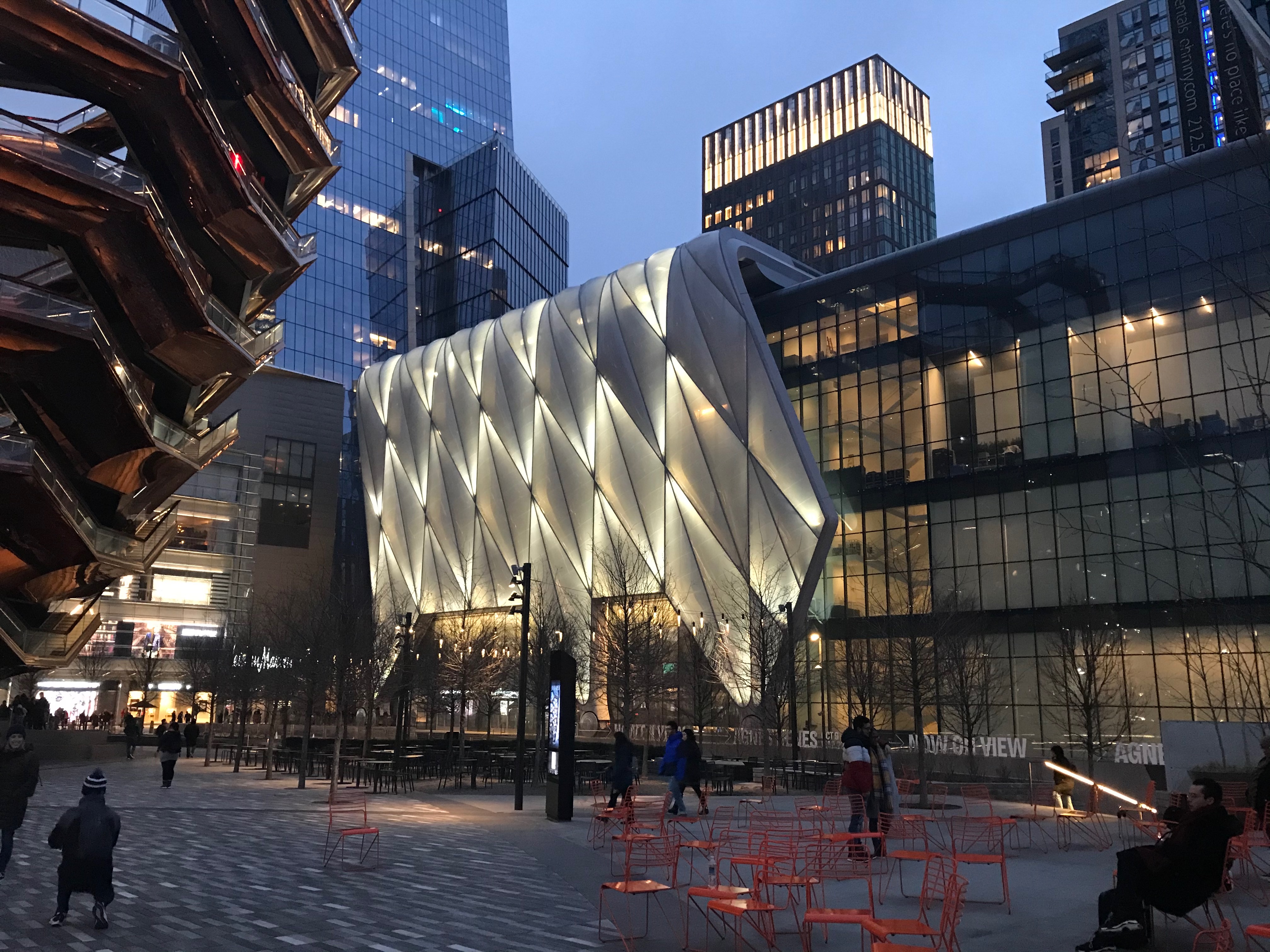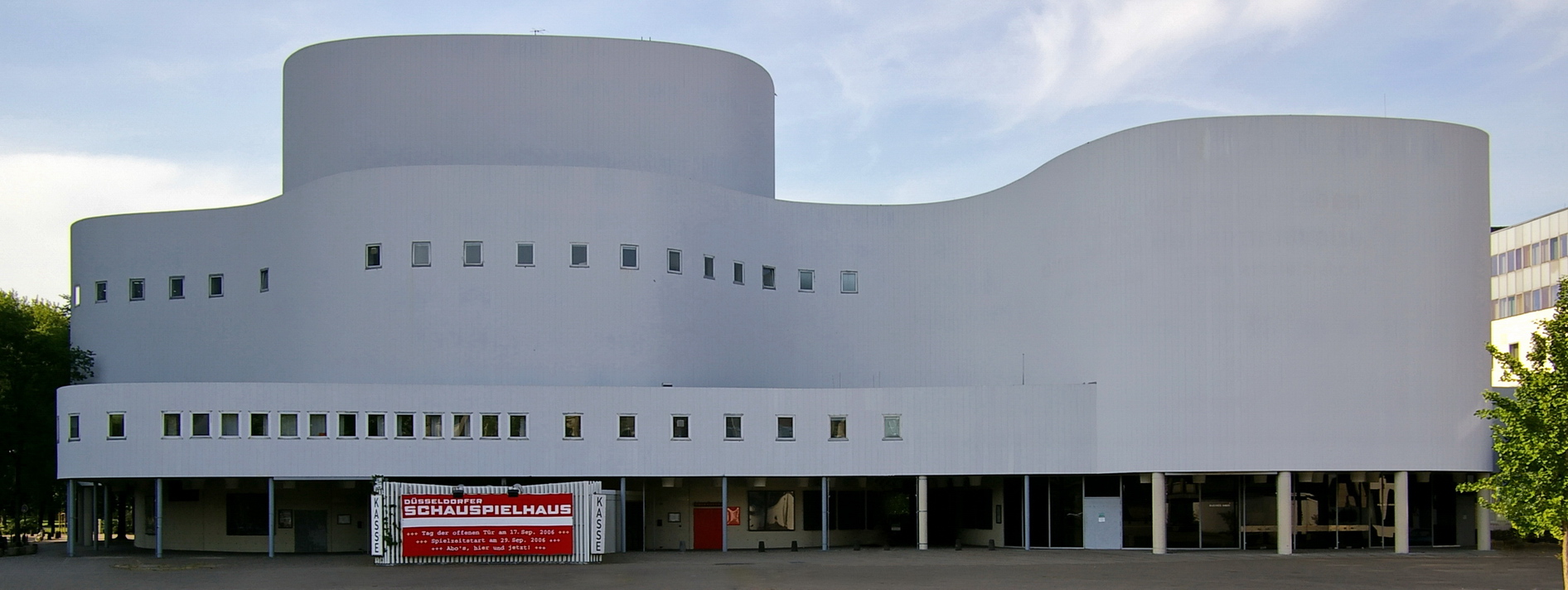|
Düsseldorfer Schauspielhaus
The is a theatre building and company in Düsseldorf. The present building with two major auditoria was designed by the architect and built between 1965 and 1969. It opened in 1970. History The theatre dates back to 1747 when during the reign of elector Karl Theodor the ''Gießhaus'' was transformed to a theatre. In 1818 Friedrich Wilhelm II donated this building to the city of Düsseldorf. Josef Derossi was its first director, succeeded in 1834 by the poet Karl Leberecht Immermann. In 1905 a house dedicated to plays was opened by Louise Dumont and Gustav Lindemann who brought the house to fame. After World War II Wolfgang Langhoff was the first director, succeeded in 1946 by Gustaf Gründgens. His directions made the house one of the most important stages in Europe. In 1955 he was succeeded by Karl Heinz Stroux. Present building The present theatre was commissioned by the city of Düsseldorf during the tenure of Stroux. The ''Operettenhaus'', which had served as ... [...More Info...] [...Related Items...] OR: [Wikipedia] [Google] [Baidu] |
Theater (structure)
A theater, theatre or playhouse, is a structure where theatre, theatrical works, performing arts and musical Concert, concerts are presented. The theater building serves to define the performance and audience spaces. The facility usually is organized to provide support areas for performers, the technical crew and the audience members, as well as the stage where the performance takes place. There are as many types of theaters as there are types of performance. Theaters may be built specifically for a certain types of productions, they may serve for more general performance needs or they may be adapted or converted for use as a theater. They may range from open-air amphitheaters to ornate, cathedral-like structures to simple, undecorated rooms or black box theaters. A theatre used for opera performances is called an opera house. A theater is not required for performance (as in site-specific theatre, environmental theater or street theatre, street theater), this article is about s ... [...More Info...] [...Related Items...] OR: [Wikipedia] [Google] [Baidu] |
Gustav Lindemann
Gustav, Gustaf or Gustave may refer to: * Gustav (name), a male given name of Old Swedish origin Art, entertainment, and media * ''Primeval'' (film), a 2007 American horror film * ''Gustav'' (film series), a Hungarian series of animated short cartoons * Gustav (''Zoids''), a transportation mecha in the ''Zoids'' fictional universe *Gustav, a character in ''Sesamstraße'' *Monsieur Gustav H., a leading character in ''The Grand Budapest Hotel'' Weapons *Carl Gustav recoilless rifle, dubbed "the Gustav" by US soldiers *Schwerer Gustav, 800-mm German siege cannon used during World War II Other uses *Gustav (pigeon), a pigeon of the RAF pigeon service in WWII *Gustave (crocodile), a large male Nile crocodile in Burundi * Gustave, South Dakota * Hurricane Gustav (other), a name used for several tropical cyclones and storms *Gustav, a streetwear clothing brand See also * Gustav of Sweden (other) * Gustav Adolf (other) * Gustave Eiffel (other) * * * ... [...More Info...] [...Related Items...] OR: [Wikipedia] [Google] [Baidu] |
Theatre Companies In Germany
Theatre or theater is a collaborative form of performing art that uses live performers, usually actors or actresses, to present the experience of a real or imagined event before a live audience in a specific place, often a stage. The performers may communicate this experience to the audience through combinations of gesture, speech, song, music, and dance. Elements of art, such as painted scenery and stagecraft such as lighting are used to enhance the physicality, presence and immediacy of the experience. The specific place of the performance is also named by the word "theatre" as derived from the Ancient Greek θέατρον (théatron, "a place for viewing"), itself from θεάομαι (theáomai, "to see", "to watch", "to observe"). Modern Western theatre comes, in large measure, from the theatre of ancient Greece, from which it borrows technical terminology, classification into genres, and many of its themes, stock characters, and plot elements. Theatre artist Patrice ... [...More Info...] [...Related Items...] OR: [Wikipedia] [Google] [Baidu] |
Theatres Completed In 1969
Theatre or theater is a collaborative form of performing art that uses live performers, usually actors or actresses, to present the experience of a real or imagined event before a live audience in a specific place, often a stage. The performers may communicate this experience to the audience through combinations of gesture, speech, song, music, and dance. Elements of art, such as painted scenery and stagecraft such as lighting are used to enhance the physicality, presence and immediacy of the experience. The specific place of the performance is also named by the word "theatre" as derived from the Ancient Greek θέατρον (théatron, "a place for viewing"), itself from θεάομαι (theáomai, "to see", "to watch", "to observe"). Modern Western theatre comes, in large measure, from the theatre of ancient Greece, from which it borrows technical terminology, classification into genres, and many of its themes, stock characters, and plot elements. Theatre artist Patrice Pavi ... [...More Info...] [...Related Items...] OR: [Wikipedia] [Google] [Baidu] |
Dantons Tod
' (German for ''Danton's Death'') is an opera by Gottfried von Einem to a libretto by Boris Blacher and Gottfried von Einem after Georg Büchner's 1835 play of the same name. Its first performance took place in Salzburg on 6 August 1947. It was revised in 1955. The successful premiere of Gottfried von Einem's opera ' at the 1947 Salzburg Festival and its quick staging by European houses were due to more than the strong drama of Einem's score. This was a first step toward the rehabilitation of German musicians after World War II; an opera by a young Austrian composer who had not collaborated in the former regime's cultural policies. ' dramatizes legalized governmental terror, a plague which the world at the time realized had not been eradicated with the end of the war. Roles Synopsis ''Dantons Tod'' was adapted from Georg Büchner's play by von Einem and his teacher, composer Boris Blacher. The protagonist is Georges Danton, a leader in the French government during the Revolution ... [...More Info...] [...Related Items...] OR: [Wikipedia] [Google] [Baidu] |
Georg Büchner
Karl Georg Büchner (17 October 1813 – 19 February 1837) was a German dramatist and writer of poetry and prose, considered part of the Young Germany movement. He was also a revolutionary and the brother of physician and philosopher Ludwig Büchner. His literary achievements, though few in number, are generally held in great esteem in Germany and it is widely believed that, had it not been for his early death, he might have joined such central German literary figures as Johann Wolfgang von Goethe and Friedrich Schiller at the summit of their profession. Life and career Born in Goddelau (now part of Riedstadt) in the Grand Duchy of Hesse as the son of a physician, Büchner attended the Darmstadt gymnasium, a humanistic secondary school."Büchner, Georg." Garland, Henry and Mary (Eds.). ''The Oxford Companion to German Literature''. 2nd ed. Oxford: Oxford University Press, 1986. p. 121. In 1828, he became interested in politics and joined a circle of William Shakespeare a ... [...More Info...] [...Related Items...] OR: [Wikipedia] [Google] [Baidu] |
Organic Architecture
Organic architecture is a philosophy of architecture which promotes harmony between human habitation and the natural world. This is achieved through design approaches that aim to be sympathetic and well-integrated with a site, so buildings, furnishings, and surroundings become part of a unified, interrelated composition. An organicist is an architect in the organic movement. History The term "organic architecture" was coined by Frank Lloyd Wright (1867–1959), though never well-articulated by his cryptic style of writing: So here I stand before you preaching organic architecture: declaring organic architecture to be the modern ideal and the teaching so much needed if we are to see the whole of life and to now serve the whole of life, holding no traditions essential to the great TRADITION. Nor cherishing any preconceived form fixing upon us either past, present, or future, but instead exalting the simple laws of common sense or of super-sense if you prefer determining form by wa ... [...More Info...] [...Related Items...] OR: [Wikipedia] [Google] [Baidu] |
Dreischeibenhaus
The Dreischeibenhaus (also known as the Dreischeibenhochhaus) is a 95-metre office building in August-Thyssen-Straße in the Hofgarten district of the Düsseldorf city centre. It was also known as the Thyssenhaus or Thyssen-Hochhaus owing to its former use as the headquarters of the Thyssen and ThyssenKrupp groups. It is among the most significant examples of post-war modernist International style and a symbol of the so-called Wirtschaftswunder, or 'economic miracle' of post-war Germany, and contrasts with the neighbouring Düsseldorfer Schauspielhaus on Gustaf-Gründgens-Platz. Dreischeibenhaus, The "Three Plates Building" (a rough translation of its name in German), was one of the first skyscrapers to be completed in Germany after WW2. In the early 1990s the building was completely refurbished including a new curtain wall matching the appearance of the original, but with improved thermal performance and moisture control. After another complete renovation under the directio ... [...More Info...] [...Related Items...] OR: [Wikipedia] [Google] [Baidu] |
Karl Heinz Stroux
Karl Heinz Stroux (25 February 1908 – 2 August 1985) was a German actor, film and theatre director, and theatre manager. As the director of the Düsseldorfer Schauspielhaus from 1955 to 1972 he opened the new building in 1970.(12 August 1985Gestorben / Karl Heinz Stroux ''Der Spiegel'' Career Born Karl-Heinz Stroux, the son of a physician, in Hamborn (now a district in the city of Duisburg), he studied in Berlin, history and philosophy until 1930. Parallel, he studied acting at the ' of the theatre. From 1928 to 1930 he worked as an assistant to stage directors Karlheinz Martin and Jürgen Fehling, and as an actor. From 1930 to 1934 he worked at several Berlin theatres including Deutsches Theater and the where he staged Eugene O'Neill's ' as a studio production. By the late 1940s he had been a senior director at several German theatres including ones in Darmstadt, Berlin (Hebbel-Theater) and Wiesbaden. From 1951 to 1955 he was the senior director at Berlin's Schiller Theat ... [...More Info...] [...Related Items...] OR: [Wikipedia] [Google] [Baidu] |
Gustaf Gründgens
Gustaf Gründgens (; 22 December 1899 – 7 October 1963), born Gustav Heinrich Arnold Gründgens, was one of Germany's most famous and influential actors of the 20th century, and artistic director of theatres in Berlin, Düsseldorf, and Hamburg. His career continued unimpeded through the years of the Nazi regime; the extent to which this can be considered as deliberate collaboration with the Nazis is hotly disputed. His best known roles were that of Mephistopheles in Goethe's ''Faust'' in 1960, and as "Der Schränker" (The Safecracker) who is the chief judge of the kangaroo court presiding over Hans Beckert (Peter Lorre) in Fritz Lang's '' M''. Early life Born in Düsseldorf, Gründgens attended the drama school of the Düsseldorfer Schauspielhaus after World War I and started his career at smaller theaters in Halberstadt, Kiel, and Berlin. Career In 1923, he joined the ''Kammerspiele'' in Hamburg, where he changed his first name to Gustaf and appeared as a director for the fi ... [...More Info...] [...Related Items...] OR: [Wikipedia] [Google] [Baidu] |
Wolfgang Langhoff
Wolfgang Langhoff (6 October 1901 in Berlin, German Empire – 26 August 1966 in Berlin, German Democratic Republic)The Internet Movie Database"Wolfgang Langhoff" Accessed 17 August 2007. was a German theatre, film and television actor and theatre director. Early career From 1923 Langhoff worked at the Thalia Theater in Hamburg, and in Wiesbaden. In 1926 he married the actress Renata Edwina Malacrida, who bore him two children, Thomas (1938-2012) and Matthias (1942). From 1928 to 1932 he played at the Schauspielhaus in Düsseldorf and then from 1932 to 1933 at the Grand Theatre in Düsseldorf. Langhoff was involved at this time with the German Communist Party and was the artistic director of the agitprop troupe "ran northwest," founded in 1930, which performed at union events. The dancer Hilarius Gilges was one its members. Langhoff was arrested by the Gestapo in February 1933 and initially detained in the Düsseldorf jail, where he was subjected to severe torture by the SA. ... [...More Info...] [...Related Items...] OR: [Wikipedia] [Google] [Baidu] |
Louise Dumont
Louise Dumont (née Louise Maria Hubertine Heynen; 22 February 1862, in Cologne – 16 May 1932, in Düsseldorf) was a German actress and theater director. Life Louise Maria Hubertine Heynen, born on 22 February 1862 in Cologne near Neumarkt, was the second of eleven or twelve siblings. Her parents were the merchant Christian Joseph Hubert Heynen (born in 1837) and Maria Elisabeth Elise Dumont (born 1836 or 1837). By 1879, Louise was working as a seamstress, following her father's second bankruptcy. Louise Dumont auditioned in 1882 at the Residenz Theater in Berlin, where she received her first role. As her artist's name she chose her mother's maiden name, Dumont. In 1888, she won an engagement at the Royal Court Theatre in Stuttgart, where she became acquainted with and a friend of Queen Charlotte of Wurttemberg. In 1898 Dumont left Stuttgart in order to join the Deutsches Theatre in Berlin, where she achieved her greatest successes, especially as a performer of pieces by ... [...More Info...] [...Related Items...] OR: [Wikipedia] [Google] [Baidu] |








.jpg)
